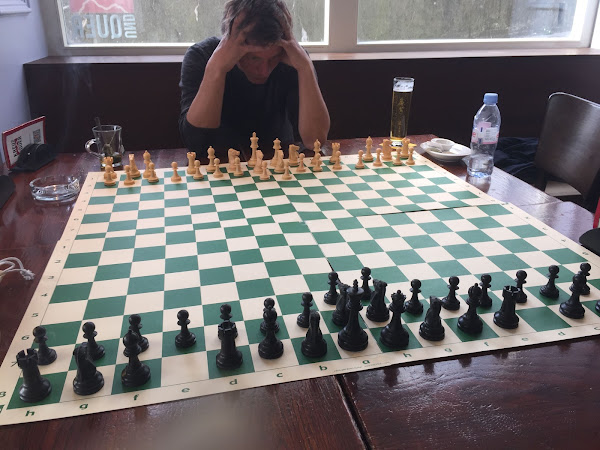Striking a Balance: How to Avoid Excessive Chess Play
Introduction:
Chess is a captivating and intellectually stimulating game that has fascinated people for centuries. Whether you're a casual player or a passionate chess enthusiast, it's essential to maintain a healthy balance in your chess-playing habits. Too much chess play can lead to burnout, reduced productivity, and even an imbalance in your personal life. In this blog post, we will explore some effective strategies to help you avoid excessive chess play and strike a harmonious balance in your life.Set Realistic Goals and Time Limits:
One of the first steps to avoid excessive chess play is to establish realistic goals and time limits for your chess activities. Determine the amount of time you can dedicate to chess without it interfering with other important aspects of your life, such as work, studies, family, and hobbies. By setting clear boundaries, you can ensure that chess remains an enjoyable and fulfilling part of your life, rather than consuming all your time and energy.Prioritize Other Interests and Hobbies:
While chess can be engrossing, it's important to maintain a well-rounded life. Dedicate time to other interests and hobbies that bring you joy and provide a break from the intensity of chess. Whether it's reading, painting, playing a musical instrument, or practicing a sport, diversifying your activities will help you recharge and bring fresh perspectives to your chess game when you do play.Create a Schedule and Stick to It:
Establishing a regular schedule for your chess play can help you maintain control over your time. Allocate specific time slots for chess practice or games, ensuring they don't encroach upon your other responsibilities. By adhering to a schedule, you'll avoid the temptation to play chess impulsively and maintain a healthy balance between chess and other areas of your life.Join Chess Clubs or Communities:
Engaging with chess clubs or communities is a great way to enjoy chess while also connecting with fellow enthusiasts. By participating in tournaments, attending chess meetups, or engaging in online chess communities, you'll find structured outlets for your chess play. These interactions can provide a sense of fulfillment and help prevent excessive play, as you'll have other chess-related activities to look forward to and limit your solo practice time.Set Clear Objectives for Chess Practice:
Instead of mindlessly playing countless games, set clear objectives for your chess practice sessions. Identify specific areas of your game that need improvement, such as openings, tactics, or endgames, and focus on those aspects during your practice. By having a purpose-driven practice routine, you'll optimize your chess development while ensuring you don't spend excessive time playing without a specific goal in mind.Take Breaks and Rest Days:
Just like any intense mental activity, chess requires periods of rest and recovery. Incorporate regular breaks into your chess sessions to give your mind a chance to recharge. Additionally, plan for rest days where you refrain from playing chess altogether. Use this time to relax, engage in other activities, and allow your brain to process the chess knowledge you've acquired. By giving yourself sufficient downtime, you'll maintain a healthier perspective on chess and avoid burnout.Conclusion:
While chess is a fascinating game, it's crucial to find a balance that allows you to enjoy it without it dominating your life. By setting realistic goals, diversifying your interests, creating a schedule, engaging with chess communities, practicing with purpose, and incorporating breaks, you can avoid excessive chess play and maintain a harmonious equilibrium in your chess-related activities. Remember, the key is to make chess a fulfilling part of your life rather than an all-consuming obsession.


Comments
Post a Comment